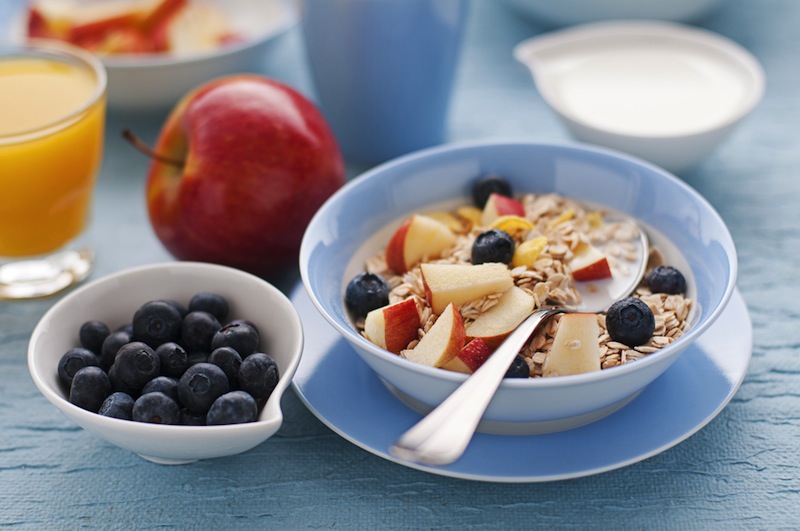Should You Eat Breakfast on Thanksgiving?

On Thanksgiving, people may forgo breakfast or lunch to save room for a feast in the evening. But this is not the best strategy to avoid packing on the pounds this holiday season, one nutritionist says.
"It's a big mistake to fast before a big meal at a party, or at Thanksgiving dinner," said Katherine Tallmadge, a registered dietitian and op-ed contributor to LiveScience.
When people skip meals, they end up feeling so hungry by dinnertime that they overeat, Tallmadge said.
"You're ravenous, and you just eat like crazy. You're completely irrational," she said.
To avoid this scenario, Tallmadge recommends eating a regular breakfast and lunch on Thanksgiving, at the same time you normally would eat these meals. This Thanksgiving, Tallmadge said she will eat her regular breakfast of oatmeal with fruit and nuts. [Thanksgiving: 10 Tips for Sticking to Healthy Portions]
It's true that at Thanksgiving dinner, most people will eat more than they would on a normal day, Tallmadge said. But by eating a regular breakfast and lunch, you'll likely eat less calories overall than you would if you skipped the meals, she said.
Another tip to avoid eating too much on Thanksgiving is to pick your three favorite, high-calorie foods at the dinner table, and indulge in only those, along with vegetable side dishes, Tallmadge said.
Sign up for the Live Science daily newsletter now
Get the world’s most fascinating discoveries delivered straight to your inbox.
Variety can also make it easy to overeat. For instance, if there are three pies for dessert, you might be tempted to take a slice of each, but you should stick with one, Tallmadge said.
And while it's OK to indulge a bit on Thanksgiving, you shouldn't continue this pattern of eating regularly, Tallmadge said. Even though you'll likely have leftovers, be careful not to eat overly large meals for another week, she said.
"Splurge on Thanksgiving Day, but get back to normal, healthy eating immediately," Tallmadge said.
Follow Rachael Rettner @RachaelRettner. Follow LiveScience @livescience, Facebook & Google+. Original article on LiveScience.

Rachael is a Live Science contributor, and was a former channel editor and senior writer for Live Science between 2010 and 2022. She has a master's degree in journalism from New York University's Science, Health and Environmental Reporting Program. She also holds a B.S. in molecular biology and an M.S. in biology from the University of California, San Diego. Her work has appeared in Scienceline, The Washington Post and Scientific American.










